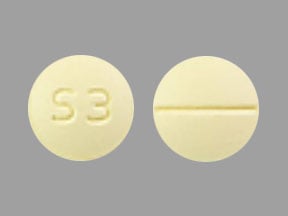
Sertraline Coupons & Savings Card – Discount Prices from $10.54
Generic for: Zoloft
My prescription
Edit
100MG, Sertraline (30 Tablets)
Select pharmacy

CVS
$19.54
COUPON PRICE
Walgreens
$10.54
COUPON PRICE
Albertsons
$11.98
COUPON PRICE
Walmart
$16.45
COUPON PRICESertraline savings card
Show this card to your pharmacist
Walgreens
$10.54
BIN
ID
PCN
GRP
019876
LHEF260DD5
CHIPPO
LHX
Powered by
More prescriptions for ptsd
More prescriptions for ptsd
Price history for Zoloft (brand) & Sertraline (generic)
30 Tablets, 100MG
Average retail price for Zoloft
Average retail price for Sertraline
Average SaveHealth price for Sertraline
Our price history data is based on aggregated prescription data collected from participating pharmacies in America. Our prescription data updates daily to reflect the latest price changes. If you notice a missing data point, it means there wasn't sufficient data available to generate a monetary value for that date.
We analyzed Sertraline prices for (100MG, 30 Tablets) over the last 12 months. The average retail price was $32.12, while the average price using the SaveHealth discount card was $11.80. That's a savings of approximately 63.26% when using our Sertraline coupon.
Compared to the generic version, Zoloft had an average price of $336.14 over the same time period. With the SaveHealth savings card, Sertraline is 96.49% cheaper on average than Zoloft.
*Retail prices are based on pharmacy claims data, and may not be accurate when we don't have enough claims.
Sertraline dosage forms
Dosage Quantity Price from Per unit 25MG 15 Tablets $9.51 $0.63 25MG 30 Tablets $10.03 $0.33 25MG 45 Tablets $10.54 $0.23 25MG 60 Tablets $11.06 $0.18 25MG 90 Tablets $17.96 $0.20 25MG 180 Tablets $20.91 $0.12 50MG 15 Tablets $3.16 $0.21 50MG 30 Tablets $3.82 $0.13 50MG 45 Tablets $4.48 $0.10 50MG 60 Tablets $5.14 $0.09
| Dosage | Quantity | Price from | Per unit |
|---|---|---|---|
| 25MG | 15 Tablets | $9.51 | $0.63 |
| 25MG | 30 Tablets | $10.03 | $0.33 |
| 25MG | 45 Tablets | $10.54 | $0.23 |
| 25MG | 60 Tablets | $11.06 | $0.18 |
| 25MG | 90 Tablets | $17.96 | $0.20 |
| 25MG | 180 Tablets | $20.91 | $0.12 |
| 50MG | 15 Tablets | $3.16 | $0.21 |
| 50MG | 30 Tablets | $3.82 | $0.13 |
| 50MG | 45 Tablets | $4.48 | $0.10 |
| 50MG | 60 Tablets | $5.14 | $0.09 |
| 50MG | 90 Tablets | $12.96 | $0.14 |
| 50MG | 135 Tablets | $20.24 | $0.15 |
| 100MG | 30 Tablets | $10.54 | $0.35 |
| 100MG | 45 Tablets | $11.31 | $0.25 |
| 100MG | 60 Tablets | $12.08 | $0.20 |
| 100MG | 90 Tablets | $19.73 | $0.22 |
| 100MG | 180 Tablets | $24.46 | $0.14 |
